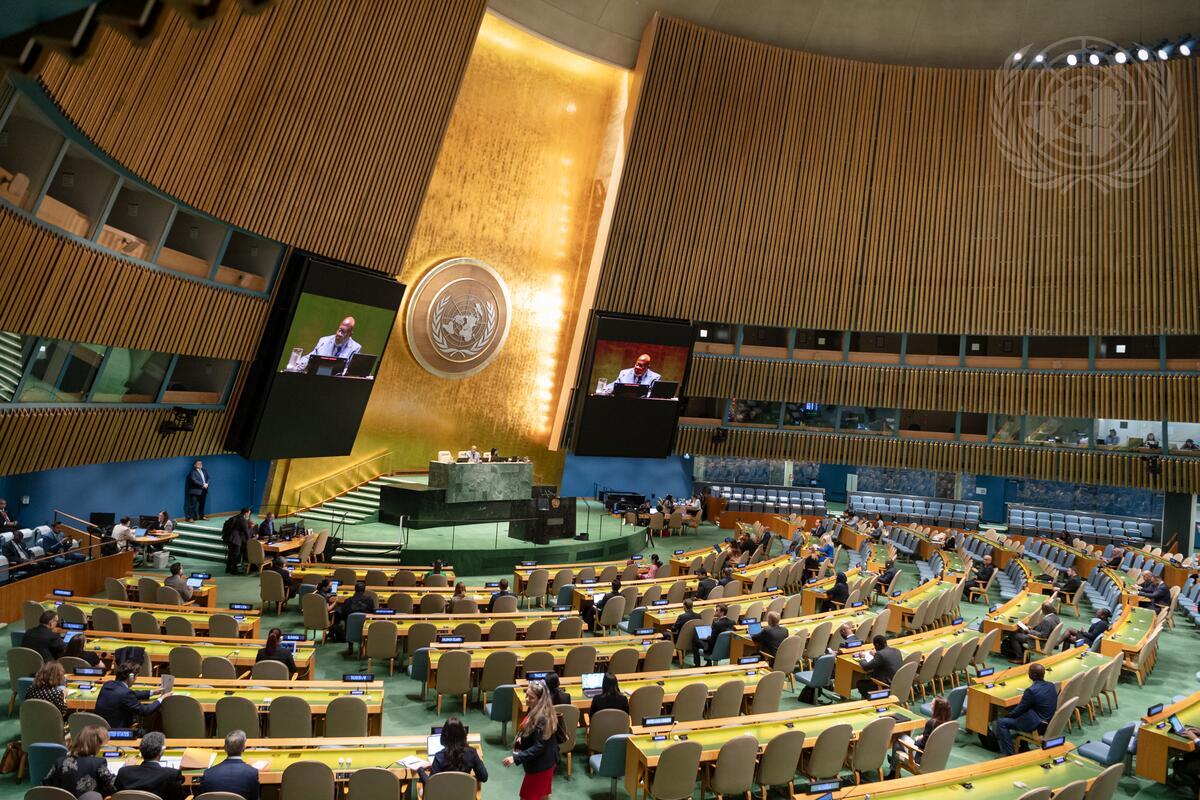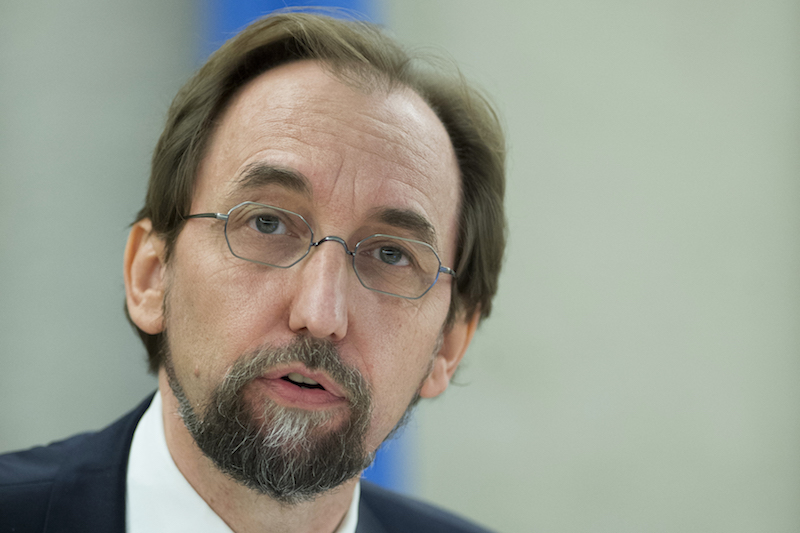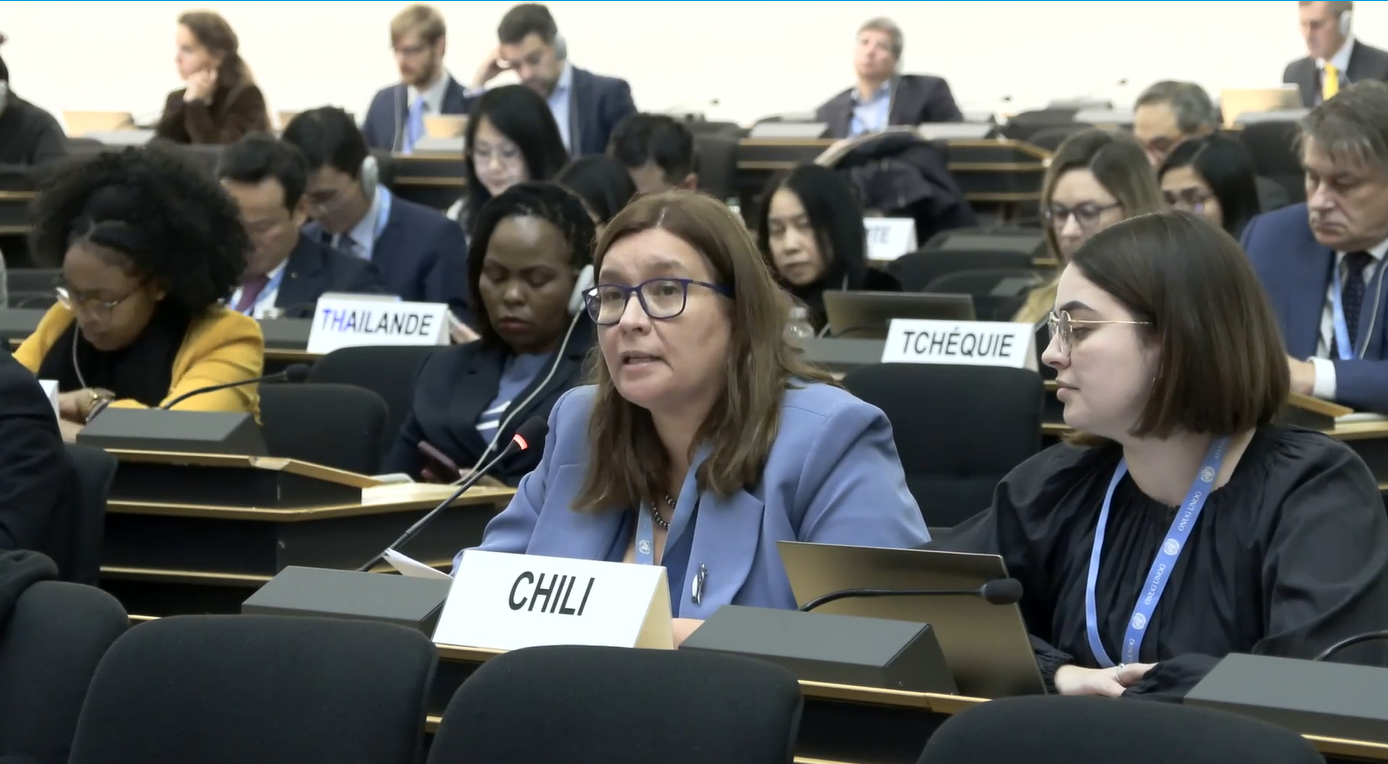Many of the most urgent challenges to be discussed in Davos stem from failure to ensure proper protection of human rights – including the right of every member of society to participate in decision-making, and rights to basic goods and services such as health-care, education and a decent livelihood. There are also very real concerns about the way the global economy functions, and its inability to deliver shared prosperity and shared security for all.
This widespread failure to ensure fair access to resources, prosperity and economic security fuels violence, increases precarious migration, and feeds support for divisive movements of hatred. It has spawned the rise of ethno-nationalist and populist movements, which in coming months will likely stoke xenophobia and violence across many regions while spurning collective solutions and international law. And as this toxic tide of hatred rises around us, essential principles which safeguard peaceful and stable societies risk being swept away.
The role of business is integral to these current challenges, and it will be essential to our ability to respond. Responsible business counts on stability – sound institutions, the smooth functioning of justice, sustainable development and public confidence in the prospects for personal safety in a larger peace. These interlocking elements can only be generated when human rights are upheld.
Many business leaders acknowledge that good business means doing business right. They are implementing the UN Guiding Principles on Business and Human Rights to address human rights impact in their operations and supply chains, and they incorporate the UN Global Compact’s Ten Principles on human rights, labour, environment and anti-corruption into their operations. Through these efforts, they are better prepared to manage the risk of the massive reputational damage which arises when corporations are perceived as involved with serious human rights abuses, such as child labour and modern slavery.
The case for respecting human rights is strong, but translating broad commitment into action across the corporate sector remains a challenge. Last March, the Economist Intelligence Unit found that 83% of senior executives considered business to be an important actor in respecting human rights. In practice, fewer than half their companies had drawn up a human rights policy statement – a key expectation for all companies under the UN Guiding Principles. We need to convince many more business actors that respect for human rights is good for their bottom line; the bulk of the world’s employment is in the private sector, and clearing up abuses will have enormous positive impact on millions of lives.
But business leaders also need to look outwards – to the communities in which they work. Business actors can be powerful advocates for the human rights which build resilient, peaceful and stable societies, able to overcome conflict and look to the future. Already, some corporate leaders realise it is in their interest to combat discrimination, inequalities, xenophobia, violence and hate – including by lobbying authorities to take action, and by empowering their staff to stand up for rights. As important local, national and regional actors, businesses can have major impact on the empowerment of women, migrants, minorities and marginalized groups, including LGBTi people. Their influence can transform the public landscape for issues of food security, land rights, environmental sustainability, the right to privacy and other essential topics.
Business cannot thrive in failing societies, where tension spikes and communities bristle with grievances and mutual contempt. Strong civil societies, due process, equality and justice: these are what enable real economic empowerment. People cannot just be the how of development – merely the tools that produce greater wealth. They are the why. In this sense, human rights — human dignity and well-being — are the whole point of economic growth.
Urgent action is needed to re-establish the public’s trust in institutions. Corporations need to respond that they make not only dollars, but sense. That they are responsible actors who will step up and play a critical role to uphold the values that keep all the world’s people safe.
Private sector actors need to assure the world they will stand up for someone’s rights today.
This piece was first published by the World Economic Forum.
Photo: UN Photo / Jean-Marc Ferré




